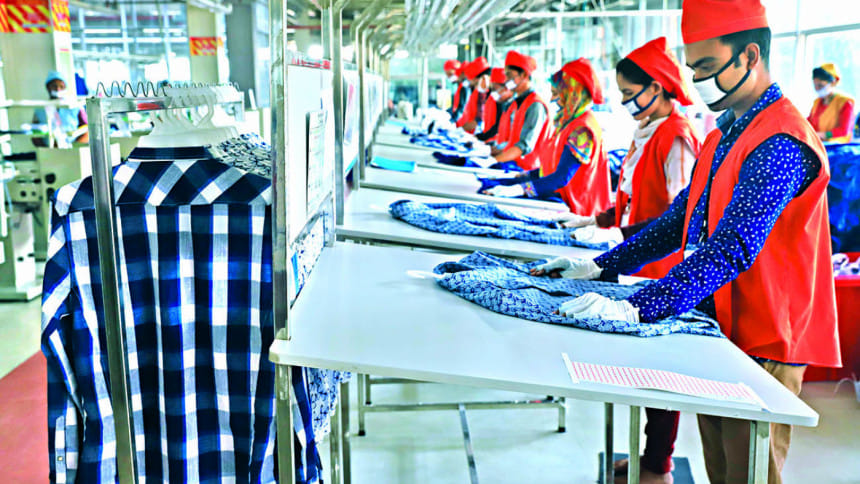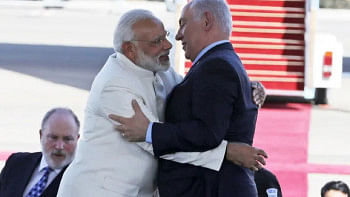Apparel export to US thrives on trade war

Apparel exports to the US, Bangladesh's single largest export destination, jumped 15.57 percent to $1.63 billion in the first three months of the year, which the exporters and experts attributed to the ongoing trade war between the US and China.
Apparel was not in the list of the items subjected to US President Donald Trump's retaliatory 25 percent duty last year, but in the updated list that came out recently garment was included.
Garment shipment from Bangladesh to the US has been increasing over the last few months because of shifting of work orders from China to Bangladesh and other garment manufacturing countries, said MA Jabbar, managing director of DBL Group, a leading local garment exporter.
"Even the day before yesterday a major American retailer came to place a bulk quantity of work orders in my factory."
Previously, the company sourced apparel products from China.
"The company has come to us not only to source garment items but also fabrics from our mills. The company also agreed to pay better prices," Jabbar said.
The entrepreneur is hopeful of nurturing a longstanding relationship with his new American buyer.
Echoing Jabbar, Ahsan H Mansur, executive director of the Policy Research Institute (PRI), said no retailer wants to do business in uncertainty.
"The rising export to the US means we have started to get the benefits of the trade war between the US and China."
A 25 percent tariff for low-end garment items is too steep for retailers.
"So, we need to improve our capacity as the buyers are starting to come to Bangladesh to place increased volume of work orders," he added.
If the new American buyers leave satisfied it will be a start of a long-term relationship as they will not shift the work orders soon to other destinations.
"If we can catch even 2 percent of Chinese work orders, it would be a very big volume for us," Mansur said, adding that China may lose 5 to 10 percent of its work orders due to the trade war.
However, the shifting of work orders from China to other destinations is not a source of major concern for the country as it is hankering to shift its manufacturing base from apparel to technological items.
Rubana Huq, president of the Bangladesh Garment Manufacturers and Exporters Association (BGMEA), acknowledged the recent spike in work orders.
"We need to optimise our capacities, not enhance them. And in case of enhancement, we must carefully study all the possible options of value addition and product diversification. Stress should be on efficiency," she added.

 For all latest news, follow The Daily Star's Google News channel.
For all latest news, follow The Daily Star's Google News channel. 








Comments